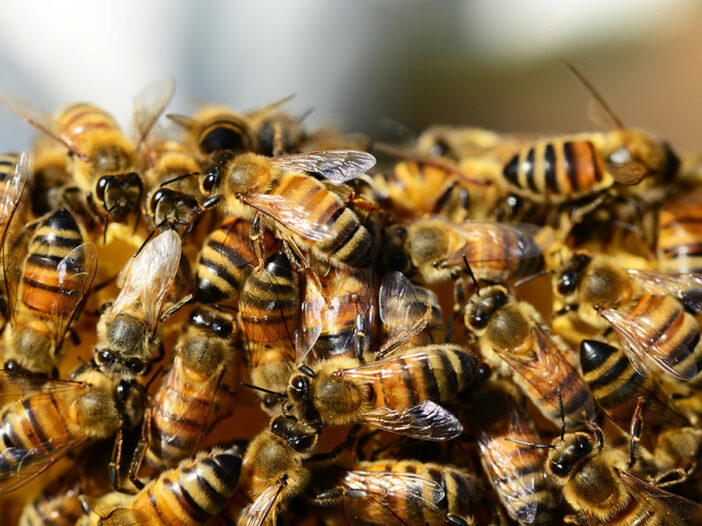
Oregon is known for its abundant crops: grapes, hops, lavender, nuts, fruit, and much more. Our rainy weather may get old, but it has a purpose. However, an often overlooked part of what makes this state so friendly to agriculture is bees! Love them, hate them, or fear them, bees play an important role in our economy, and at Northwest Pest Control we want to see them thrive.
Bees are pollinators that help in the reproduction of numerous crops that feed much of the world. They can easily identify their next food source using their five eyes, three small ones on top of their head to detect light intensity, and two larger eyes to help them see flowers. They feed on nectar to give them energy, and pollen for its proteins and nutrients. As they feed, the pollen sticks to them and they transport it throughout their journey.
Just one bee can pollinate over 300 million flowers daily. They’re able to do this because, with wings that beat about 200 times a second, they can fly at speeds up to 15 miles per hour. The agricultural industry relies on this speedy pollination service to keep the economy humming….or buzzing. Bees help ensure a stable and diverse food supply.
We can’t overlook honey. Honeybees are the only insect that produces the food we eat. Think about that for a minute and then consider bees visit close to 2 million flowers across 55,000 miles just to produce one pound of honey. That’s a lot of work for a product we slather on toast or nonchalantly turn into that lovely cocktail, appropriately called Bees Knees.
Bees also serve as indicators of environmental health which is why recent reports of dwindling numbers of bees have been met with alarm. There’s a phenomenon known as Colony Collapse Disorder that’s caused when worker bees disappear leaving behind the queen. The use of pesticides, loss of habitat, and parasites are all suspected factors in why this happens. What we are sure of is that fewer bees signal a larger problem in the environment. When you consider worker bees only live for about 6 weeks, you understand why a lack of steady replacements can decimate a population.
There are more than 20,000 species of bees worldwide with some well-knowns like honeybees, bumblebees, and solitary bees, taking up residence in places around the globe. The only place you won’t find bees is in Antarctica. Even they find the climate there just a bit too harsh. They live in bee societies with a queen surrounded by worker bees and male drones, each holding specific roles within a hive. No one is sure exactly how they can keep their work orders straight, but we do know honeybees perform a crazy little dance to communicate the location of food to the other bees in their hive.
Unfortunately, bees sometimes get a bad reputation because they can sting, and that sting can be painful for some and even deadly for others. Interestingly, only female bees sting, and they don’t sting without being provoked. For good reason, once a bee stings someone or something, it dies. Stay out of the bees’ way and you’ll be safe from stings.
While we feel bees should be admired, we understand there are places they should not be. If you find bees have invaded your space or are posing a risk to your kids and pets, call Northwest Pest Control. We’re happy to connect you to the services of the Oregon State Beekeepers Association which maintains a list of people who can safely remove bees, often at no charge. Remember, bees play an important role in our economic well-being and whenever possible should be safely relocated rather than exterminated.